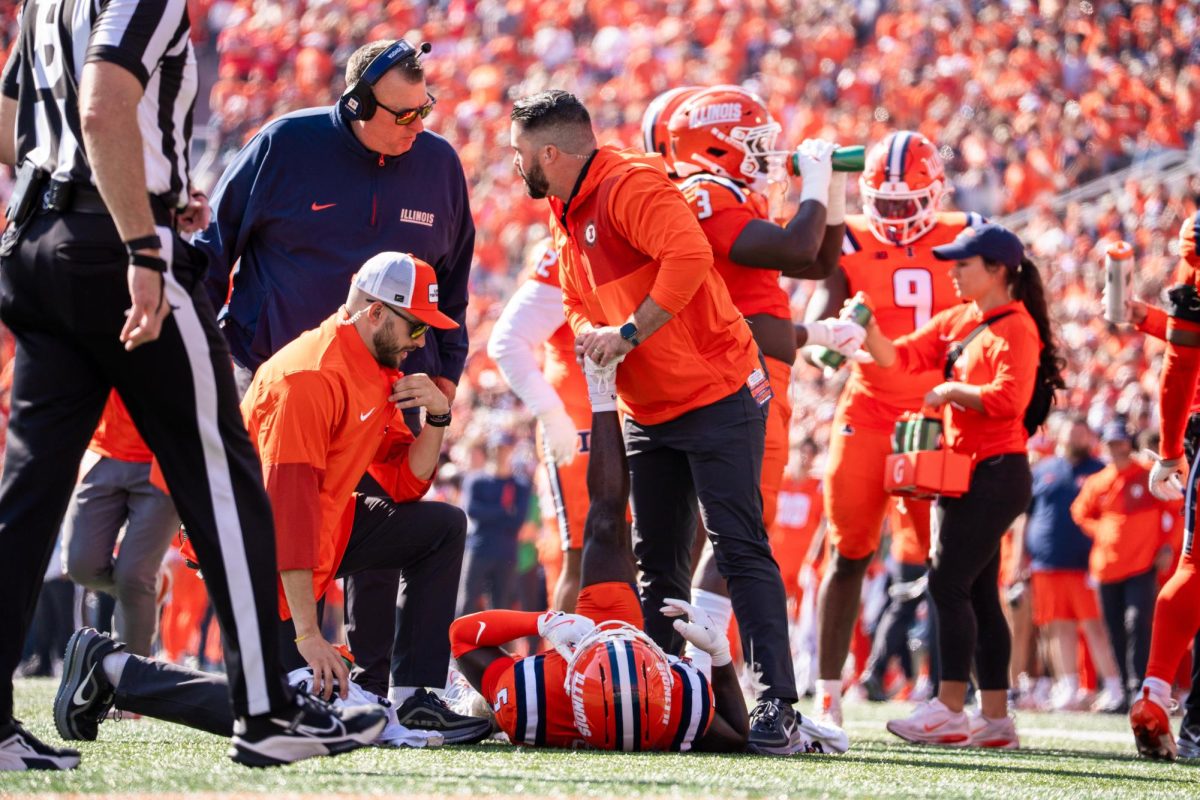Pursuing a degree in music is often thought of as studying a specific instrument, aspiring to land a chair in an orchestra or becoming a band teacher — but there are many more options within a music degree.
In the School of Music, there are different programs students can center their studies around, such as instrumental performance, musicology, composition and music education.
For about the last decade, students have also had the option to center their bachelor’s degree in music on music technology, which focuses on audio production, recording, mixing, electro-acoustic composition techniques, interactive sound synthesis and digital audio fluency.
According to associate professor of composition theory Eli Fieldsteel, the music technology program opens doors to many different career paths for musicians.
“Technology has seeped into nearly every aspect of music, so if a student has strong musical fundamentals and technological proficiency, the options are many,” Fieldsteel said in an email. “Some students end up in software development; others end up working as live sound or studio recording engineers. Others establish record labels, start a non-profit or take a similarly entrepreneurial approach.”
Get The Daily Illini in your inbox!
Students studying music technology can take various classes, including MUS 127: Beatmaking I, MUS 105: Computation and Music I and MUS 407: Elect Music Techniques I, which focus on skills like audio programming and using recording technology.
“There are a lot of conceptions, and misconceptions, about what music technology is and isn’t, what it can and can’t do,” Fieldsteel said. “As a field of study, it’s wider than you might think.”
As money and job security are often a concern among aspiring musicians, another class offered within the music technology program is MUS 428: Music Monetization. Students learn how to work with artists, agencies and venues in arranging live performances, among other skills.
“We teach music monetization, which has a range of topics, but the idea is … we have these talented musicians who have these skill sets, but there was no course to show them how to bring them all together to make money in any certain kind of way,” said Lamont Holden, assistant professor in FAA.
David Whang, senior in FAA, decided to study music technology because of his aspirations in video game sound design.
“My primary goal is to hopefully be part of the gaming industry, using my skills from various classes and my minor in game studies,” Whang said. “I’ve always been a fan of video game music and wondered how it would feel to be part of something similar to sound design and music in the gaming industry … so that kind of helped me get towards the music technology major.”
Whang did not know the music technology program existed at the University when he first applied, reflecting the lack of knowledge among students about this path within the School of Music.
“I wasn’t aware of this program until part way through my freshman year of college,” Whang said. “I was talking to my music adviser about the different approaches I could do regarding music, and she recommended me the music technology program. I decided, ‘I’ll see how that feels,’ and I’m having a great time with it right now.”
The staff within the music technology department have contributed to Whang’s positive experience in the program. He said they help students explore all the different options they have for their futures.
“There’s a lot of faculty in the music technology department that are really supportive of our goals,” Whang said. “Obviously, we have to make our own strides to reaching those goals, but they help us out a lot in making sure we’re going the right direction.”
The music technology program brings a modern, technical approach to creating music. Creativity and artistry are still vital skills for students on this path and are encouraged through the classes and projects students undertake in the program.
“I try to encourage students to innovate rather than imitate,” Fieldsteel said. “All of the big breakthroughs in music technology that produced game-changing tools often came from somebody breaking the rules or trying something new and different. That’s the type of thinking I hope music technology students will pursue.”





